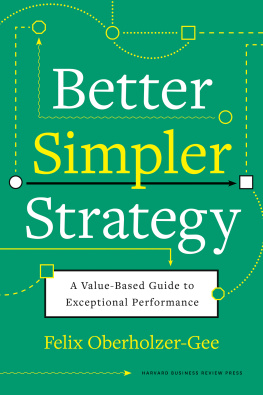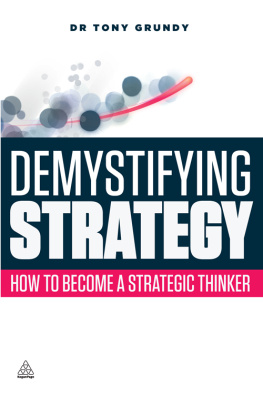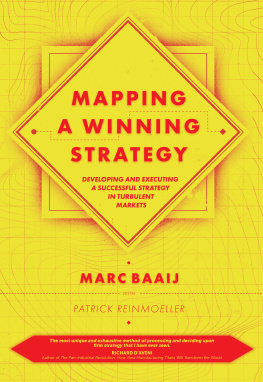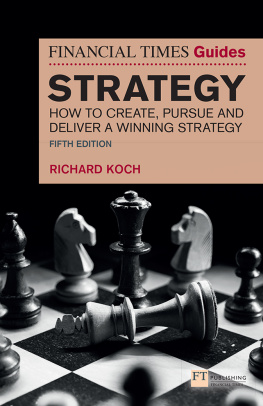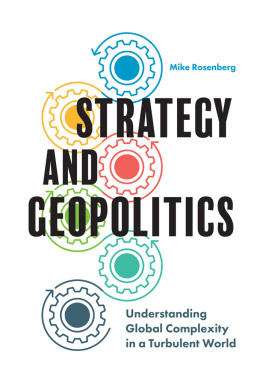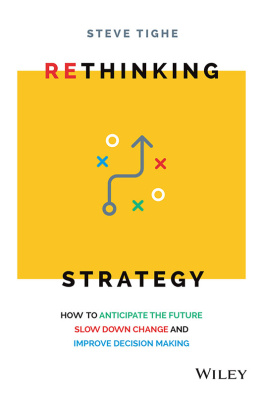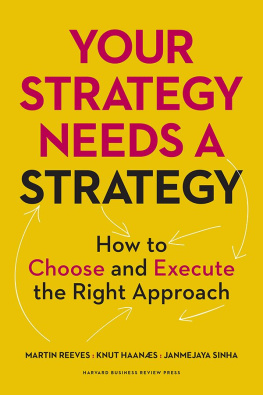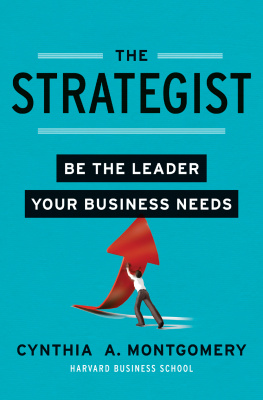Copyright
HBR Press Quantity Sales Discounts
Harvard Business Review Press titles are available at significant quantity discounts when purchased in bulk for client gifts, sales promotions, and premiums. Special editions, including books with corporate logos, customized covers, and letters from the company or CEO printed in the front matter, as well as excerpts of existing books, can also be created in large quantities for special needs.
For details and discount information for both print and ebook formats, contact .
Copyright 2021 Harvard Business School Publishing Corporation
All rights reserved
No part of this publication may be reproduced, stored in or introduced into a retrieval system, or transmitted, in any form, or by any means (electronic, mechanical, photocopying, recording, or otherwise), without the prior permission of the publisher. Requests for permission should be directed to , or mailed to Permissions, Harvard Business School Publishing, 60 Harvard Way, Boston, Massachusetts 02163.
First eBook Edition: Apr 2021
ISBN: 978-1-63369-969-4
eISBN: 978-1-63369-970-0
What difference is there between us, save a restless dream
that follows my soul but fears to come near you?
Khalil Gibran
CONTENTS
PART ONE
EXCEPTIONAL PERFORMANCE
PART TWO
VALUE FOR CUSTOMERS
PART THREE
VALUE FOR TALENT AND SUPPLIERS
PART FOUR
PRODUCTIVITY
PART FIVE
IMPLEMENTATION
PART SIX
VALUE
PREFACE
Strategy is simple.
I am not sure this is the right sentence to begin this book. Youmy readerand I do not know each other, and I am concerned I may be creating a poor first impression. So let me assure you, I am not prone to making grand statements. My worldthe world of rigorous academic research that helps improve management practiceis all about careful reasoning. Our sentences begin with probably, and our numbers come with 95 percent confidence intervals.
And yet, it is true: strategy is simple.
Seeing the simplicity in strategy is not easy. It took me many years and the guidance of great teachers and patient colleagues. Sharing the insight is possibly even harder. Fortunately, I have had much practice. I have been teaching at Harvard Business School for almost 20 years. It is a rare week when I do not have the opportunity to explore questions of strategy with executives and MBA students from around the world. What I have learned in these conversations is that it is liberating to discover the simplicity in strategy. As if by magic, you see past inscrutable business jargon and incongruent frameworks. All of a sudden, you understand how the very best companies achieve their exceptional performance and why many others fail to live up to their potential. This experience, the freedom that comes with clarity, is what I hope to share with you in this book. It is a book about the (financial) performance of companies, yes, but I have no interest in proffering a collection of success stories. Instead, my goal is to provide you with a powerful yet simple way of thinking about business and the role of strategic management.
Most books have many more authors than their covers lead us to believe. This one is no exception. I owe an immense debt of gratitude to Adam Brandenburger and Harborne W. Stuart, who developed the intellectual foundations for a theory of value-based competition.
What author could make progress without close friends who patiently read early drafts and generously share insights? I am deeply grateful to Youngme Moon, who helped me to capture the key ideas embedded in the core framework and find my voice for the book; Frances Frei, who collaborated on an early pamphlet on value-based strategy; as well as Mihir Desai, Hong Luo, and Dennis Yao, whose analytical brilliance can sharpen any argument. Amy Bernstein, Claudio Fernndez-Aroz, Rebecca Henderson, Hubert Jolie, Raffaella Sadun, David Yoffie, and many of my colleagues in the strategy unit at Harvard Business School provided helpful comments. I also benefited from the help of the executive directors and researchers in the HBS Global Initiative centers around the world. Pippa Tubman Armerding, Esel ekin, Rachna Chawla, Carla Larangeira, Pedro Levindo, Fernanda Miguel, Anjali Raina, Nobuo Sato, Rachna Tahilyani, and Patricia Thome all provided global insights and many examples of value-based strategy at work.
This book would not have been possible without the hundreds of conversations I held with executives and MBA students in my courses, in particular the participants in the General Management Program. You taught me how to think, ever more simply and effectively, about strategy and exceptional business performance. I would also like to thank Peggy Alptekin, my copy editor, who read the manuscript with exceptional care; Scott Berinato, the visual genius who brought my illustrations to life; and my editor, Jeff Kehoe, who was instrumental in moving the project across the finishing line.
Are you ready? Prepared to think? Dream? Let us begin.

Simpler, Better
In the past few decades, strategy has become increasingly sophisticated. If you work for a sizable organization, chances are your company has a marketing strategy (to track and shape consumer tastes), a corporate strategy (to benefit from synergies), a global strategy (to capture worldwide business opportunities), an innovation strategy (to pull ahead of the competition), an intellectual property strategy (to defend the spoils of innovation), a digital strategy (to exploit the internet), a social strategy (to interact with communities online), and a talent strategy (to attract individuals with extraordinary skills). And in each of these domains, talented people work on long lists of urgent initiatives.
Companies are right, of course, to consider all these challenges. Rapid technological change, global competition, supply chain disruptions due to climate change and worldwide health emergencies, as well as ever-evolving consumer tastes, do conspire to upend traditional ways of doing business. As the worlds economies became more integrated, firms needed a global strategy. As technology altered consumer tastes and ways to satisfy them, it was imperative to rethink innovation and marketing. As the cost and utter unfairness of limiting workplace diversity became impossible to ignore, companies needed to find ways to build more inclusive talent pools and career paths. By responding to each of the new challenges, however, we asked ever more of our organizations, had even higher expectations of employees, and required our complex strategies to bring about sheer miracles.
I see evidence of such increased expectations everywhere. They manifest themselves in outstanding products, unbelievable experiences, and deals of a lifetimebut also in long working hours, seemingly impossible stretch goals, and harried lives. When I visit companies to do research and write cases, I rarely leave without being impressed by how much people accomplish in short periods of time, often with limited resources. But here is what surprises me most: given the sophistication of firm strategies and the intensity of our work lives, I would expect to see impressive firm profitability at most companies and more-than-generous compensation packages for nearly everyone. I see neither. Take firm profitability: one-fourth of the firms included in the S&P 500 fail to earn long-term returns in excess of their cost of capital. In China, this fraction is even higher, closer to one-third.

